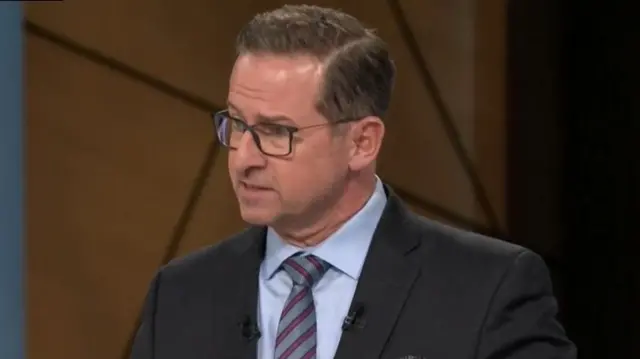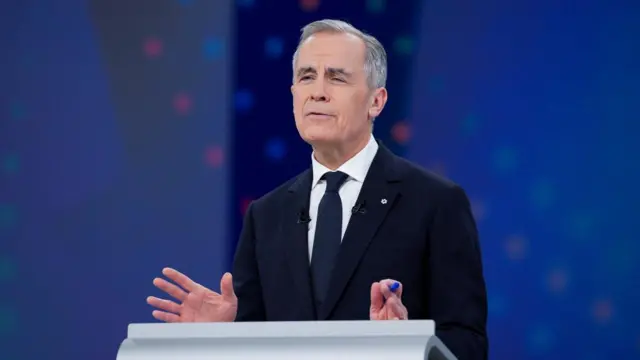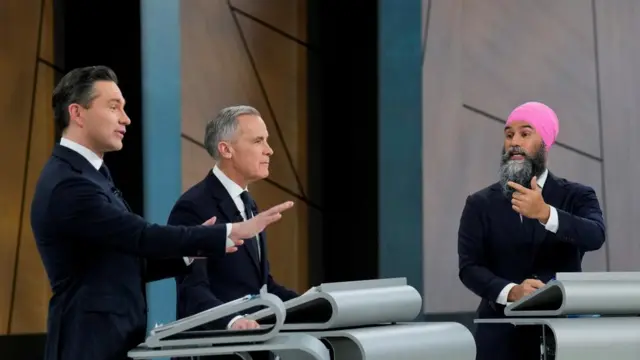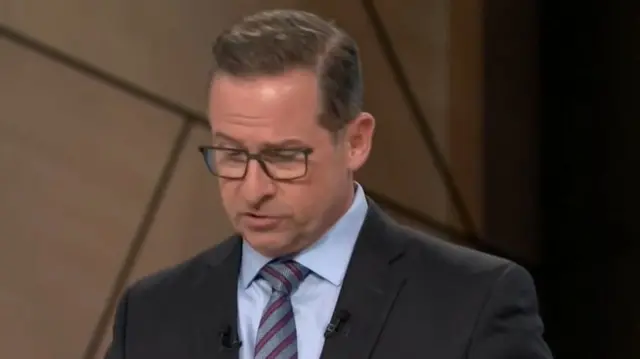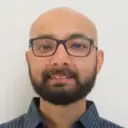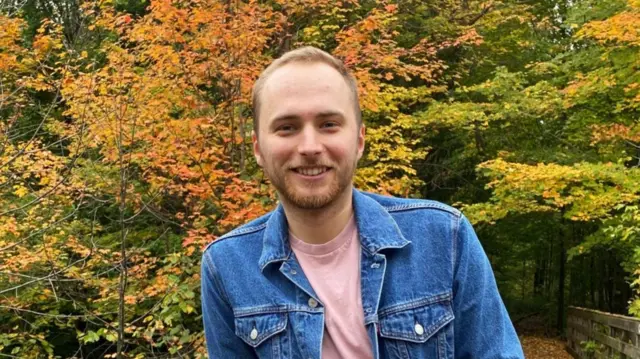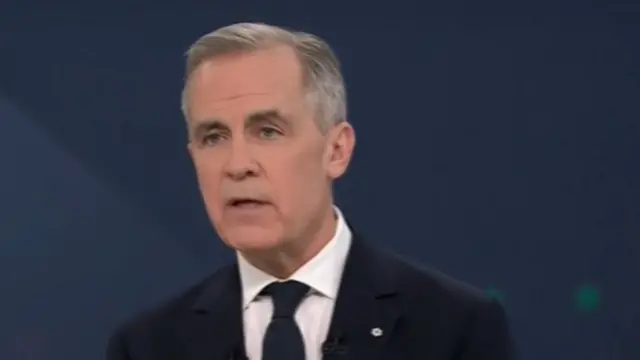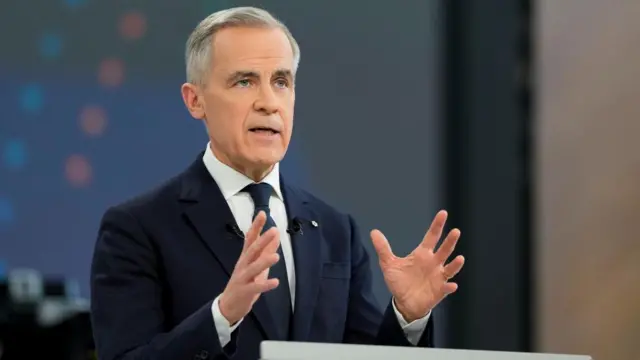Carney, Poilievre also throw support behind Europe and Ukraine as Singh talks healthcarepublished at 01:35 BST 18 April
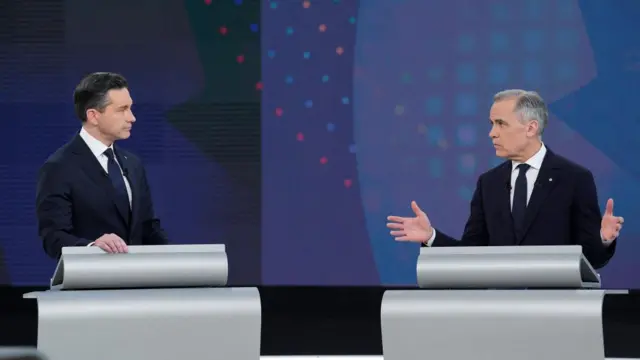 Image source, Reuters
Image source, ReutersOn Ukraine, Poilievre says it is important for Canada to take a different tack than the United States: "We don't need to follow Americans on everything," he says.
As the US signals retreat from Europe, he says he agrees with continued support for Ukraine.
Carney also says he supports Ukraine in its fight against the Russian invasion and touts his record of joining European allies as part of the so-called "coalition of the willing" which seeks to guarantee funding for Kyiv.
Singh also says he supports continued help for Ukraine, but uses his time focus on healthcare, as he says the Canadian system is facing the problem of increasing "privatisation and Americanisation".
